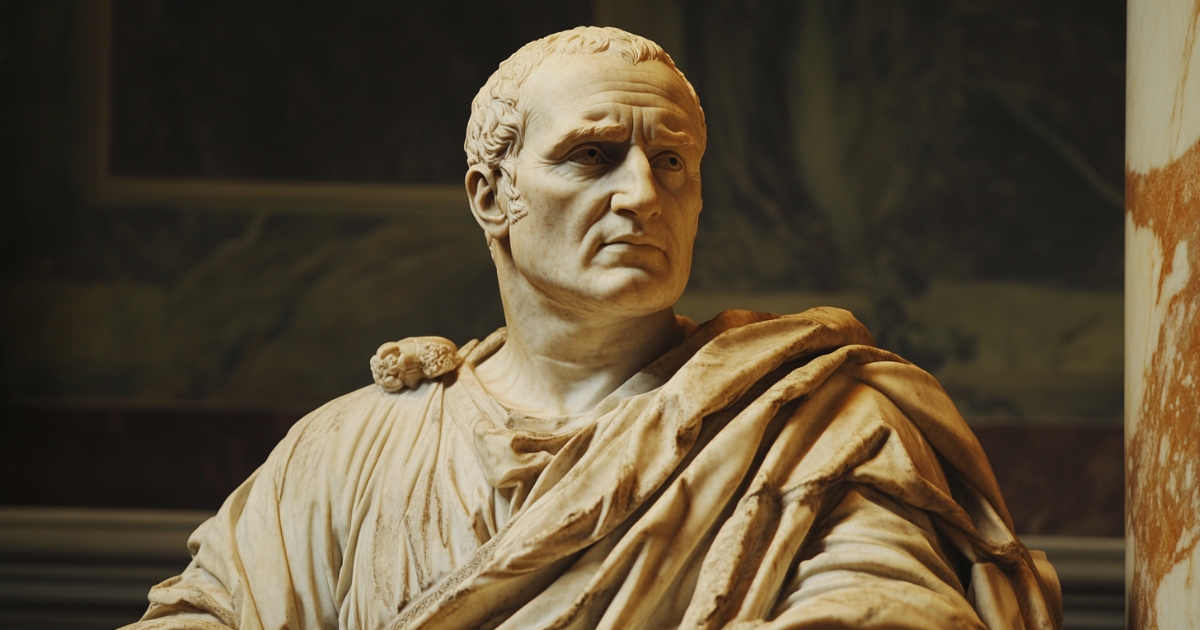Introduction
Marcus Tullius Cicero (106-43 BCE), a politician and orator of ancient Rome, had a profound impact on the development of Western political thought and rhetoric. His eloquence and political acumen stood out during the tumultuous period at the end of the Roman Republic. This article provides an overview of Cicero’s life and achievements, analyzing his representative speeches to explore the close relationship between politics and rhetoric in ancient Rome. Furthermore, we will consider the influence of Cicero’s ideas on European politics and education in later generations.
Cicero’s Life and Historical Context
Cicero was born in 106 BCE in Arpinum, near Rome. The era in which he lived was a turbulent period when the Roman Republic faced internal contradictions and external pressures, leading to its eventual collapse. Cicero studied law and rhetoric in Rome from a young age, using his talents to enter the political arena.
His political career progressed smoothly, culminating in his election as consul, the highest office in Rome, in 63 BCE. During this time, Cicero delivered numerous important speeches, gaining fame for his eloquence and political insight. However, he became entangled in the power struggle between Julius Caesar and Pompey, ultimately leading to his assassination in 43 BCE on the orders of Mark Antony.
Cicero’s Rhetoric and Representative Speeches
Cicero’s rhetoric, while inheriting Greek traditions, was practical and adapted to the political realities of Rome. He viewed oratory not merely as a technique but as a comprehensive discipline linked to philosophy and ethics.
One of Cicero’s representative speeches is the “Catiline Orations.” This series of speeches denounced Catiline and his conspirators who plotted to overthrow Rome. In these orations, Cicero skillfully employed rhetorical techniques that appealed to the audience’s emotions while developing logical arguments. For example, he used rhetorical questions and hyperbole to emphasize the maliciousness of Catiline’s actions.
In the “Verrine Orations,” Cicero accused Verres, the governor of Sicily, of corruption. In this speech, he effectively used the ad hominem technique to attack Verres’ character while presenting concrete evidence.
The hallmark of Cicero’s speeches was the exquisite balance between logical structure and emotive expression. By appealing to both the reason and emotions of his audience, he created powerful persuasion.
The Relationship Between Politics and Eloquence
In ancient Rome, politics and eloquence were inseparable. Speeches in the popular assemblies and the Senate greatly influenced policy-making and public opinion formation. Cicero fully understood this political reality and utilized oratory as a source of political influence.
In his work “De Oratore,” Cicero portrays the ideal orator as someone with broad knowledge of philosophy, law, and history, who can skillfully use this knowledge to persuade audiences. This represented an ideal of political eloquence tied to comprehensive character formation, rather than mere technical skill in oratory.
Cicero believed that eloquence was the foundation of democratic politics. For him, public debate and persuasion were civilized political means to counter violence and tyranny. This idea would greatly influence later European democratic thought.
The Influence of Cicero’s Ideas
Cicero’s ideas and rhetoric were passed down through the Roman Imperial period to medieval and Renaissance Europe. Renaissance humanists, in particular, enthusiastically studied and imitated Cicero’s style and rhetoric.
In the field of education, Cicero’s works long served as textbooks for Latin and rhetoric, forming the core of elite education in Europe. His concept of the “liberal arts” became the foundation of university education from the Middle Ages to the Renaissance.
In terms of political thought, Cicero’s republican ideals influenced 18th-century Enlightenment thinkers and became one of the ideological foundations of the American Revolution. His theory of “mixed government” also influenced the concept of separation of powers.
Furthermore, Cicero’s rhetoric continues to influence modern political communication. His teachings are still referenced in political speechwriting and election campaign strategies.
Conclusion
Cicero’s oratory symbolized the close relationship between politics and rhetoric in ancient Rome. By skillfully combining logical thinking and emotional appeal, he gained powerful political influence. Cicero’s ideas went beyond mere technique in oratory, presenting an ideal of political participation and civic education.
His influence transcends time, extending to European political thought, education, and modern political communication. Cicero’s legacy continues to challenge us about the power and responsibility of speech in democratic societies.
In today’s globalized world, the importance of dialogue and persuasion among people with different cultures and values is increasing. Perhaps it is in such times that we should reconsider the essence of the oratory and political philosophy that Cicero taught.


